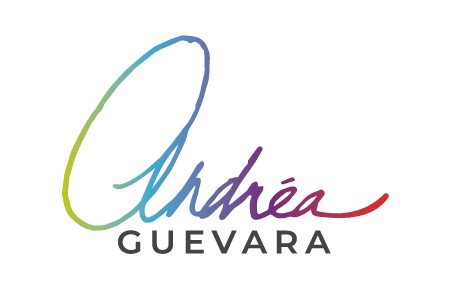Q: I want to start a website to gain followers and make money with my writing. I’ve identified a niche, but I’m wondering how to get started branding myself. -Trish
Andrea:
Understand Yourself & Your People
Before you do anything else dig down deep and articulate who you are and what the overarching themes will be.
Next, figure out who your audience and what they are in to on a deeper level. I’m talking micro, like what kind of food they like to eat (i.e. are they granola, or junk food). This will help you identify what they are into, where they like to go and what kinds of things they’ll want to read or see.
Develop deep knowledge and show it off.
I think the most important thing is knowing about your subject matter on a deep level. Demonstrating that you are a “go-to” person for your niche subject matter will help a lot.
I recommend making a list of six months worth of content ideas. Then break up those ideas based on how you want to write about them. For instance, some ideas might be better for blog posts while others might be best to pitch for publication. Blog posts are great for once people get to your website and can also be useful for SEO (search engine optimization), and getting pieces published elsewhere online can help drive traffic to your website as well as give you more credibility.
For the website itself:
If you don’t want to hire someone to create a WordPress site for you, depending on your technical skill, I suggest just setting one up yourself at wordpress.com, or setup a site with Squarespace, though I prefer WP.
Keep it simple, but make sure you have these elements:
- clean design,
- quality content (decide on that beforehand),
- an email list sign up,
- links to your social media,
- SEO driven content (you can find a great guide to some of the most popular SEO plugins for WordPress by heading to the Victorious website).
Make Time for Your Brand
Next, schedule regular time for promoting yourself. Quality and consistency are the most important factors in building up an audience.
Collaborate with Others
When you’re first starting out and don’t have an audience yet, it can be really helpful to partner up with folks who have similar audiences that are already built. Whether it’s a podcast, a webinar, a guest post, or an event, you can build your audience by giving valuable content to sister audiences. Start reaching out to others that relate to your niche–people or brands who have a bigger audience and figure out ways to collaborate. And always make generosity a priority. What will they get from you, if they partner with you?
If you implement these things it will give you a great start on building your writer brand.
Do you have a burning question about branding your writing or creativity? The business or psychological side to pursuing your dream of supporting yourself with your creative work? Please email it to me. It just might get selected to be featured on this blog.
How do I get started branding myself?


